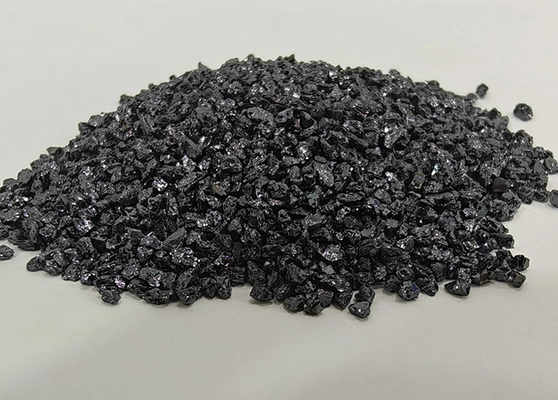In the medical device industry, particularly in orthopedic and surgical implants, the role of abrasives is often overlooked yet critically important. From shaping titanium hip joints to polishing spinal implants, abrasive tools ensure that each component meets the highest standards for performance, safety, and biocompatibility.
This article explores how abrasive technologies contribute to the precision manufacturing of medical implants and why manufacturers, suppliers, and healthcare providers should not underestimate their impact.
The Role of Abrasives in Medical Implant Manufacturing
Medical implants—such as joint replacements, spinal rods, dental screws, and trauma fixation devices—are typically made from high-performance materials like titanium alloys, cobalt-chrome, and ceramics. These materials are biocompatible but extremely difficult to machine. This is where abrasives play a vital role.
Abrasive tools are used in various stages of the production process:
- Rough Grinding: For initial shaping of implant components.
- Precision Grinding: To achieve exact dimensional tolerances.
- Surface Finishing: To improve wear resistance and reduce friction.
- Polishing: For smooth, mirror-like finishes that support tissue integration and hygiene.
Why Surface Quality Matters in Implants
The surface of a medical implant is more than just cosmetic—it directly affects how the implant interacts with human tissue. Key benefits of high-quality surface finishes achieved with abrasives include:
- Improved Biocompatibility: Smoother surfaces reduce immune reactions and improve integration with bone and soft tissues.
- Reduced Bacterial Adhesion: Polished surfaces make it harder for microbes to colonize, reducing infection risks.
- Enhanced Wear Resistance: Especially important in joint replacements where friction is continuous.
- Precise Fit: Fine abrasive finishing ensures implants fit perfectly into bone cavities or mating components.
Common Abrasives Used in Implant Production
Depending on the base material and the manufacturing stage, different abrasive types are employed:
- Diamond Grinding Wheels: Used for machining ultra-hard ceramics or polishing titanium alloy surfaces.
- Cubic Boron Nitride (CBN): Ideal for high-speed finishing of hardened metals like cobalt-chrome alloys.
- Aluminum Oxide Wheels: Commonly used for shaping and deburring stainless steel surgical tools or low-stress titanium implants.
- Polishing Compounds: Paired with polishing wheels to achieve low-Ra (roughness average) surface finishes under 0.1 µm.
Challenges in Medical Abrasive Processing
Manufacturing implants with abrasive tools involves specific challenges:
- Heat Control: Excessive heat from grinding can alter metallurgical properties or reduce biocompatibility. Coolants and controlled grit size are essential.
- Contamination Risk: Abrasive residues must be strictly avoided. Tools must meet medical-grade cleanliness standards (e.g., ISO 10993, FDA 21 CFR Part 820).
- Tolerance Requirements: Medical implants often require tolerances within ±5 microns, demanding extremely precise abrasive systems.
Case Study: Hip Implant Finishing
In hip joint production, the femoral head must achieve a mirror-like finish (Ra < 0.05 µm) to reduce friction against the acetabular cup. This is achieved through sequential abrasive steps:
- Coarse diamond grinding for initial shaping
- Medium grit polishing with CBN wheels
- Final buffing with diamond paste
This multi-step process ensures durability, smooth articulation, and long-term comfort for the patient.
Selection Criteria for Abrasive Tools in Medical Applications
Choosing the right abrasives depends on a combination of factors:
- Material Compatibility: Ensure abrasives do not react or degrade the implant material.
- Precision Capability: Tools must support ultra-fine tolerances without deforming surfaces.
- Cleanability: Must be easy to sterilize and leave no foreign residues.
- Tool Life: Long-lasting abrasives improve process stability and reduce cost.
Regulatory and Compliance Considerations
All abrasives used in medical implant production must align with global standards such as:
- FDA 21 CFR Part 820 (Quality System Regulation)
- ISO 13485: Medical devices — Quality management systems
- ISO 10993: Biocompatibility evaluation
Failure to comply may result in rejected batches, product recalls, or loss of certification.
Conclusion: Why Abrasives Matter in Medical Implants
In conclusion, abrasive tools are not just accessories in medical implant production—they are essential for achieving functional, safe, and regulatory-compliant outcomes. Their ability to shape, smooth, and polish ultra-hard biomaterials makes them irreplaceable in modern medical manufacturing.
For manufacturers and global suppliers, investing in the right abrasive technology can reduce costs, shorten time to market, and most importantly—deliver better outcomes for patients worldwide.
Request a Quote or Sample
Popular Products
Grünes Siliziumkarbid
View DetailsSchwarzes Siliziumkarbid
View Details